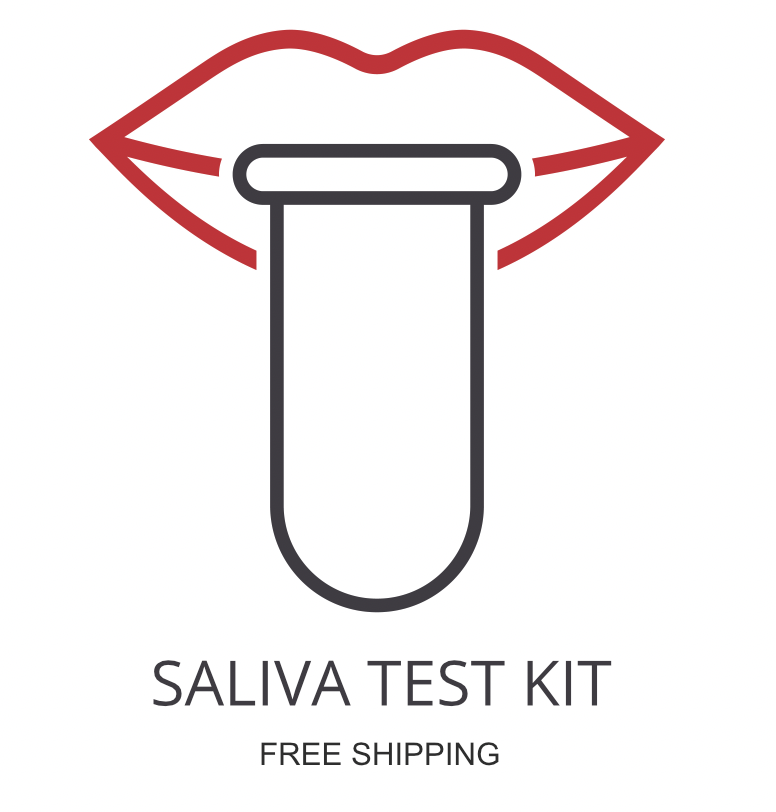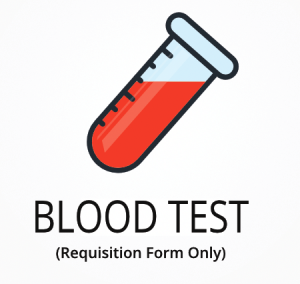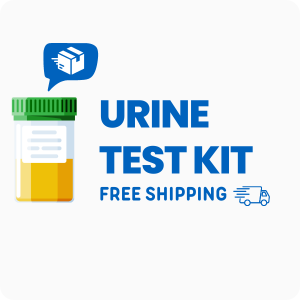Ordering the Mucosal Immune Reactivity Screen | Cyrex Array #14
The Mucosal Immune Reactivity Screen from Cyrex Labs helps identify immune responses to a wide range of environmental and dietary triggers that may affect gut lining and immune function. This test is often used to detect immune reactions linked to digestive discomfort, food intolerance, and symptoms like fatigue, headaches, or joint pain. Interestingly, this screen can also reveal immune responses to environmental toxins such as heavy metals and mold, which are not always considered in standard gut health evaluations.
Ordering this test can help you:
- Pinpoint immune reactions to specific foods, including gluten, dairy, soy, corn, and eggs
- Detect immune responses to environmental toxins like mercury, aflatoxin, and bisphenol-A
- Assess gut barrier integrity by measuring markers like occludin/zonulin and actomyosin
- Identify inflammation in the digestive tract with markers such as calprotectin
- Monitor immune activity against infections and autoimmunity-related proteins
Who Should Consider Gut Barrier and Immune Reactivity Testing
People who experience ongoing digestive issues, unexplained fatigue, or skin problems may benefit from this test. For example, someone who has tried multiple diets but still struggles with bloating, brain fog, or mood swings could use this test to uncover hidden immune triggers.
Ordering this test may also be helpful in these situations:
- Persistent headaches or migraines that do not improve with standard treatments
- Chronic joint pain or stiffness without a clear diagnosis
- Unexplained weight gain or difficulty losing weight despite lifestyle changes
- Recurring skin rashes or eczema that flare up after eating certain foods
- Frequent respiratory symptoms that seem to worsen after exposure to specific environments, which may be linked to immune reactions to environmental toxins
Testing for immune reactivity can help identify specific triggers that may be causing symptoms, allowing for targeted changes in diet or environment. Delaying this test could mean missing the chance to address immune reactions early, which may lead to ongoing symptoms or more complex issues over time.
How to Prepare for Gut Immune Reactivity Screening
Fasting is not required for this test, but you should review the kit instructions for any special preparation steps. Make sure to carefully follow any guidance your doctor or healthcare practitioner provides to ensure your sample is collected correctly and your results are as useful as possible.
Labs Included When Ordering Your Mucosal Immune Reactivity Screen | Cyrex Array #14
| Test Name | Reference Range | Significance | Low and High Levels of Mucosal Immune Reactivity Screen | Cyrex Array #14 |
|---|---|---|---|
| Lipopolysaccharides | 0-19 | Lipopolysaccharides are toxins from certain bacteria that can trigger immune responses and inflammation in the gut. Elevated levels may indicate bacterial imbalance or leaky gut. | High levels mean possible bacterial overgrowth or increased gut permeability.
Low levels mean minimal exposure or immune response to bacterial toxins. |
| Total Secretory IgA | 68-368 | Secretory IgA is an antibody that protects the gut lining from pathogens and toxins. It reflects the immune system’s activity in the digestive tract. | High levels mean active immune response or inflammation in the gut.
Low levels mean reduced immune defense in the digestive tract. |
| Occludin/Zonulin | 0-19 | Occludin and zonulin are proteins that help control the tightness of the gut barrier. Changes in these markers can signal increased gut permeability. | High levels mean the gut barrier may be more open, allowing unwanted substances to pass through.
Low levels mean the gut barrier is likely intact. |
| Actomyosin | 0-19 | Actomyosin is a protein complex involved in cell structure. Immune reactions to actomyosin can indicate damage to the gut lining. | High levels mean possible immune attack on gut lining.
Low levels mean little or no immune response to gut lining proteins. |
| ASCA/ANCA | 0-19 | ASCA and ANCA are antibodies linked to certain autoimmune digestive conditions. Their presence can help identify immune-related gut issues. | High levels mean possible autoimmune activity in the gut.
Low levels mean no significant autoimmune response detected. |
| Calprotectin | 0-50 | Calprotectin is a protein released during inflammation in the digestive tract. It is a marker for gut inflammation and can help monitor disease activity. | High levels mean active inflammation in the gut.
Low levels mean little or no inflammation present. |
| Alpha-Gliadin | 0-19 | Alpha-gliadin is a component of gluten. Immune reactions to this protein are common in gluten sensitivity and celiac disease. | High levels mean possible gluten sensitivity or celiac disease.
Low levels mean no significant immune response to alpha-gliadin. |
| Gamma-Gliadin | 0-19 | Gamma-gliadin is another gluten protein. Immune responses to gamma-gliadin can indicate gluten-related disorders. | High levels mean immune reactivity to gluten.
Low levels mean no immune response to gamma-gliadin. |
| Glutenin | 0-19 | Glutenin is a major gluten protein. Immune reactions to glutenin can help identify gluten intolerance or celiac disease. | High levels mean gluten intolerance or celiac disease may be present.
Low levels mean no immune response to glutenin. |
| Gluteomorphin | 0-19 | Gluteomorphin is a breakdown product of gluten. Immune reactions to gluteomorphin can be linked to neurological and digestive symptoms. | High levels mean possible gluten-related neurological or digestive symptoms.
Low levels mean no immune response to gluteomorphin. |
| Wheat Germ Agglutinin | 0-19 | Wheat germ agglutinin is a protein in wheat that can trigger immune responses. It is not related to gluten but can still cause symptoms. | High levels mean immune reactivity to wheat proteins.
Low levels mean no immune response to wheat germ agglutinin. |
| Transglutaminase-2 | 0-19 | Transglutaminase-2 is an enzyme targeted in celiac disease. Immune reactions to this marker are used to help diagnose celiac disease. | High levels mean possible celiac disease or gluten-related autoimmunity.
Low levels mean no immune response to transglutaminase-2. |
| Egg | 0-19 | Egg proteins can trigger immune responses in some people. This marker helps identify egg intolerance or allergy. | High levels mean possible egg intolerance or allergy.
Low levels mean no immune response to egg proteins. |
| Soy | 0-19 | Soy proteins can cause immune reactions in sensitive people. This marker helps detect soy intolerance or allergy. | High levels mean possible soy intolerance or allergy.
Low levels mean no immune response to soy proteins. |
| Corn | 0-19 | Corn proteins can trigger immune responses. This marker helps identify corn intolerance or allergy. | High levels mean possible corn intolerance or allergy.
Low levels mean no immune response to corn proteins. |
| Alpha + Beta Casein | 0-19 | Alpha and beta casein are milk proteins. Immune reactions to these proteins can indicate dairy intolerance or allergy. | High levels mean possible dairy intolerance or allergy.
Low levels mean no immune response to casein proteins. |
| Casomorphin | 0-19 | Casomorphin is a breakdown product of casein. Immune reactions to casomorphin can be linked to digestive and neurological symptoms. | High levels mean possible dairy-related digestive or neurological symptoms.
Low levels mean no immune response to casomorphin. |
| Aflatoxin | 0-19 | Aflatoxin is a toxin produced by certain molds. Immune reactions to aflatoxin can indicate exposure to mold toxins. | High levels mean possible mold toxin exposure.
Low levels mean no immune response to aflatoxin. |
| Bisphenol-A | 0-19 | Bisphenol-A is a chemical found in plastics. Immune reactions to BPA can signal environmental toxin exposure. | High levels mean possible BPA exposure and immune reactivity.
Low levels mean no immune response to BPA. |
| Mercury | 0-19 | Mercury is a heavy metal that can trigger immune responses. This marker helps detect immune reactivity to mercury exposure. | High levels mean possible mercury exposure and immune reactivity.
Low levels mean no immune response to mercury. |
| Mixed Heavy Metals | 0-19 | This marker checks for immune responses to a group of heavy metals. It helps identify environmental exposures that may affect immune function. | High levels mean possible exposure to multiple heavy metals.
Low levels mean no immune response to heavy metals. |
| Rotavirus | 0-19 | Rotavirus is a virus that can infect the gut. Immune responses to rotavirus can indicate past or current infection. | High levels mean possible recent or ongoing rotavirus infection.
Low levels mean no immune response to rotavirus. |
| Myelin Basic Protein | 0-19 | Myelin basic protein is found in nerve tissue. Immune reactions to this protein can be linked to neurological symptoms or autoimmunity. | High levels mean possible immune attack on nerve tissue.
Low levels mean no immune response to myelin basic protein. |
| Blood-Brain Barrier Protein | 0-19 | This protein helps protect the brain from harmful substances. Immune reactions may signal blood-brain barrier disruption or neurological risk. | High levels mean possible blood-brain barrier disruption.
Low levels mean no immune response to this protein. |
| Immune Complex | 0-19 | Immune complexes are formed when antibodies bind to antigens. High levels can indicate ongoing immune activation or inflammation. | High levels mean ongoing immune activation or inflammation.
Low levels mean minimal immune complex formation. |
Reference ranges may change slightly as labs update their methods and standards.
Mucosal Immune Reactivity Screen | Cyrex Array #14 FAQ
Is there Mucosal Immune Reactivity Screen | Cyrex Array #14 testing near me?
This test is provided as a kit that you can take to a local draw site, which you can find using the draw location link at the top of the page. For people dealing with ongoing digestive discomfort or food reactions, having a nearby collection site makes it easier to get tested quickly and start finding answers.
How do I interpret the test results?
While your treating physician should review your results, you can also schedule a one-on-one test results review with our clinical team for a detailed explanation and next steps.
What is the cost of the test?
The price listed for this test includes standard shipping to you and return shipping to the lab, but draw fees at the collection site may apply. Ordering this test can help you identify specific immune triggers, which may help you address symptoms like bloating or fatigue more effectively.
How often should I retest?
Retesting is usually recommended every 6-12 months, especially if you are making changes to your diet or environment based on your results. Regular testing helps track your immune responses and see if your interventions are working.
How accurate is the test?
This test uses ELISA (enzyme-linked immunosorbent assay) technology to measure immune responses, with a specificity of 98% and sensitivity of 97%. TrueHealthLabs.com partners with CLIA-certified and CAP-certified laboratories to uphold rigorous testing standards for dependable results.
Important Notes
- It is recommended to be clear of immunosuppressants and/or corticosteroids for at least 60 days prior to taking this test. Please consult with your prescribing healthcare provider.
- NOT AVAILABLE IN NEW YORK. SPECIMEN DRAWS CAN BE COMPLETED IN NEIGHBORING STATES.
- We are now accepting international orders. Sample must be received within 7 days. Additional return shipping fees may apply.
- READ: IMPORTANT Cyrex FAQs
- Due to circumstances beyond our control, pediatric blood draws are not included under Cyrex’s contracted phlebotomy. All patients 15 years of age and younger are included in the pediatric group. Pediatric blood draws must be scheduled by the parents at a laboratory of their choosing, and must be paid for by the parent at the time of service.
Medical Review Board
Reviewed by Jeff Donohue M.D. from Body Logic and Brady Hurst DC, CCCN. Written by True Health Lab’s team of editorial health contributors.
Disclaimer: This information is for educational purposes only and not intended as medical advice. Consult your healthcare provider for personalized guidance.
Why Customers Trust True Health Labs - What People are saying
Also rated 4.6 out of 5 based on 3452 ShopperApproved reviews- See all TrueHealthLabs.com reviews.









